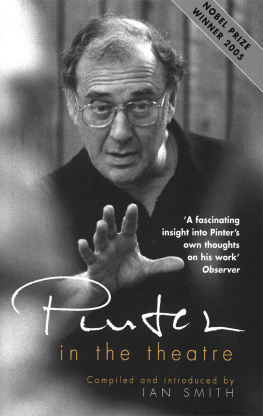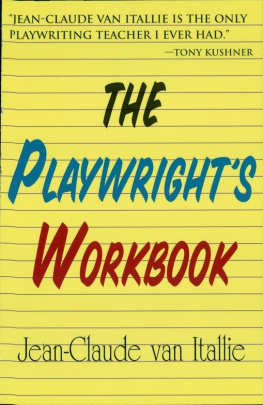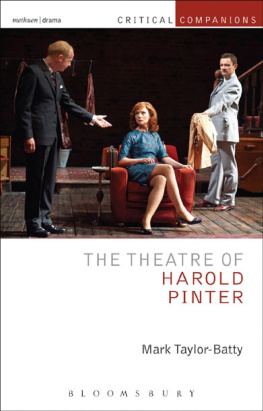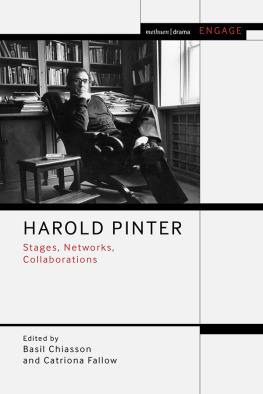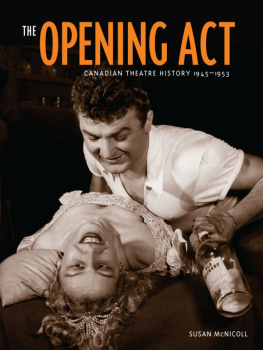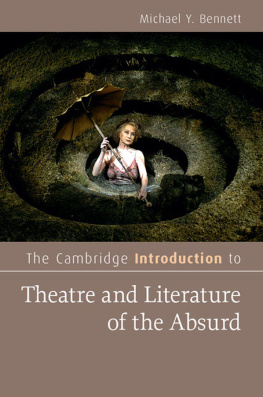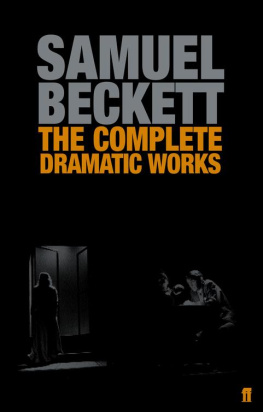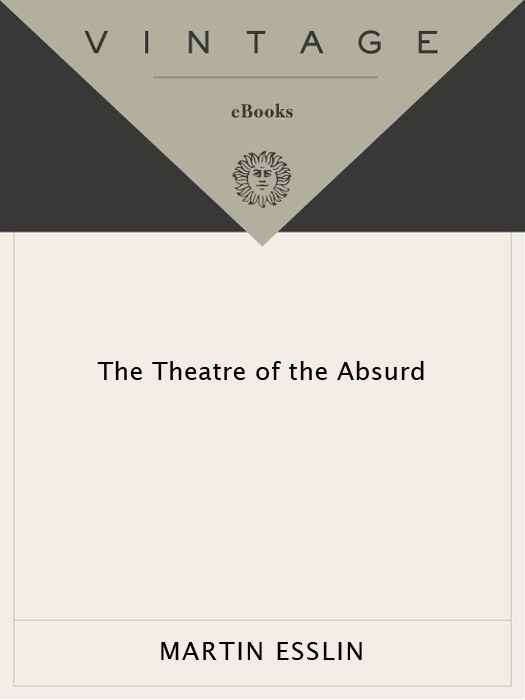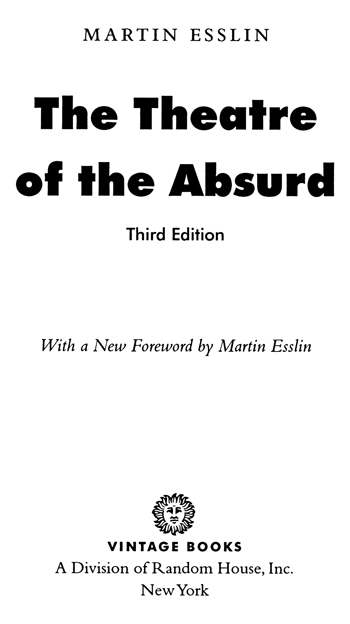All rights reserved under International and Pan-American Copyright Conventions. Published in the United States by Vintage Books, a division of Random House, Inc., New York, and simultaneously in Canada by Random House of Canada Limited, Toronto. Published in the United States by Anchor Books in 1961 and revised in 1969. Published in Great Britain by Pelican Books in 1968 and revised in 1980. This edition, including the new foreword, was first published in Great Britain by Methuen Publishing Limited, London, in 2001.
Vintage and colophon are registered trademarks of Random House, Inc.
LE POMPIER : Cest vous de la trouver.
ACKNOWLEDGEMENTS
My thanks for permission to make use of copyright material are due to: Faber & Faber Ltd for quotations from Becketts Waiting for Godot, Endgame, Krapps Last Tape, and Embers; John Calder (Publishers) Ltd for quotations from Becketts Molloy, Ionescos essay The world of Ionesco in International Theatre Annual, no. 2 and from Ionescos plays Victims of Duty, Amde, Improvisation, and The Killer in Donald Watsons translation; M. Jean Genet and his translator Mr Bernard Frechtman for quotations from Deathwatch and The Blacks (published in the U.K. by Faber & Faber Ltd and in the U.S.A. by Grove Press); Methuen & Co. Ltd for quotations from Harold Pinters plays The Birthday Party, The Caretaker, and The Dwarfs; Mrs W. B. Yeats for an extract from The trembling of the veil in the volume Autobiographies; Mr N. F. Simpson for a quotation from A Resounding Tinkle; and the Observer for permission to quote from articles by Eugne Ionesco and Kenneth Tynan. M.E .
FOREWORD FORTY YEARS ON
T HIS book first appeared almost exactly forty years ago in the spring of 1961 in an epoch which, as one looks back on it, seems almost as remote and different from the present as, say the 1860s or the 1760s. And if continued demand for this text has prompted its reissue in 2001, its nature and function have inevitably changed by the action of time.
I was motivated to write it at the end of the 1950s by impatience, even rage, with theatre critics who seemed to me to have missed the importance and beauty of plays that had deeply moved me when I ran across them, almost by chance, in little theatres on the Paris Left Bank while reporting on boring NATO or OEEC conferences for the BBC World Service.
What had started as a polemic then, had, by the early 1980s, duly updated and expanded, become a history and a reference handbook on a significant segment of twentieth-century drama. The theatre of the absurd had become part of the language. Whenever there was mayhem in a parliamentary debate from Washington to Luxembourg, I would, with some embarrassement, read headlines like Theatre of the Absurd in the Senate.
And, indeed, a title that turns into a clich used by headline writers is a dangerous thing. I soon noticed that many people who talked about, or criticized, this book, had in fact never read more than its title. That tide had seemed to them to sum up its contents as they imagined them and they were even ready and eager to criticize me for what they imagined it was saying. Those, who having, without reading it, thought that it tried to present a rigidly defined movement or school of drama, accused me of wrongly including this or that playwright. Interviewers who asked some of the authors involved the ludicrous question of whether they considered themselves members of the club or school of the absurd, and got answers in the negative, triumphantly unmasked me as having been disastrously misguided. Yet, more than once, one of the playwrights concerned, such as Ionesco, would ring, me: Esslin, dans la nouvelle edition, tu as donn dix pages de plus a Beckett pourquoi seulement six a moi!?
In fact, anyone, who actually has read it, will know that the book tries to avoid rigid definitions and interpretations. When I had sent Beckett the draft of the chapter on him, he very graciously replied: I like the way you raise hares and then say they are better not pursued , thus agreeing to my policy of avoiding any attempt at rigid interpretations of what these works really meant.
The category suggested by the books title had merely been intended to draw attention to certain features the works discussed had in common, different and diverse as they were; certain techniques in the handling of exposition, delineation of character, use of dream and hallucination, etc: in fact, elements that arose from the zeitgeist, the atmosphere of the time, rather than from deliberate theoretical considerations. Artists who follow their intuition are usually unaware of what their works may have in common with the general approach or atmosphere of their period. One might as well have asked a palaeolithic potter whether he considered himself part of the Magdalanian style.
The 1980 edition appeared at a time when the heyday of the playwrights it discussed was just about coming to an end. Hence, it was still possible to try to keep it as up-to-date as possible the polemic had turned into a historical record and a book of reference.
A further twenty years on, in a new century, a new millenium, this text confronts a very different world: Beckett died in 1989, Ionesco in 1994, Adamov as early as 1970, Genet in 1986, Max Frisch in 1991, Drrenmatt in 1990; Harold Pinter celebrated his seventieth birthday in 2000; and Vaclav Havel resides in the castle of Prague as president of the Czech republic. The secondary literature on these and the other playwrights dealt with has become so vast that the bibliography at the back would excede the actual text in length.
And so the book, I hope, may acquire another status no longer a polemic, no longer a source of topical reference its main function now becomes, I believe, to provide an example of how, in its time, an emergent new tendency was recognised, described, discussed, located within a tradition as an attempt to present it to, and make it understood by, a largely uncomprehending public. It thus simply stands for itself, a milestone on the long road along which the art of drama travels through history that broad highway into which many side roads debouch carrying new concepts, conventions and techniques to merge into the mainstream of traffic.


